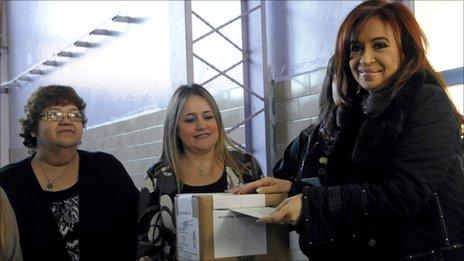Argentina's Cristina Fernandez celebrates landslide win
- Published
- comments
"What else can I ask for?" - Argentine President Cristina Fernandez de Kirchner
Argentine President Cristina Fernandez de Kirchner has won re-election in a landslide victory, on the back of strong economic growth in the country.
Ms Fernandez secured nearly 54% of vote, with her closest challenger, socialist Hermes Binner on just 17%.
Ms Fernandez told jubilant supporters in Buenos Aires' Plaza de Mayo that she wanted to keep Argentina growing.
She also made an emotional reference to her late husband, former president Nestor Kirchner, who died a year ago.
"Count on me to continue pursuing the project," she said, watched by supporters on a huge TV screen. "All I want is to keep collaborating ... to keep Argentina growing. I want to keep changing history."
Her critics say she has benefited from a weak and fragmented opposition in this election.
But Ms Fernandez, 58, has presided over strong economic growth and pursued popular social policies.
The sudden death of Nestor Kirchner in October 2010 brought her a wave of public sympathy.
"This is a strange night for me," Ms Fernandez told her jubilant supporters. "This man who transformed Argentina led us all and gave everything he had and more. Without him, without his valour and courage, it would have been impossible to get to this point."
Ms Fernandez may also regain control of Congress, which she lost in mid-term elections in 2009.
Nearly 30 million voters were choosing who will fill 130 seats in the lower house of Congress, 24 Senate seats and nine governor's offices as well as hundreds of local seats.
High inflation
The victory marks a dramatic change of fortune for Ms Fernandez, the BBC's Vladimir Hernandez in Buenos Aires says.
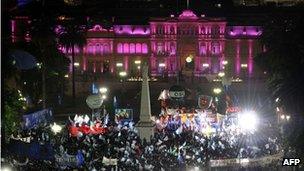
Ms Fernandez is set to remain the Pink House's resident for the next four years
Following her election in 2007, her public support quickly plummeted to around 20% after rows with farmers and media groups over of the introduction of exports quotas.
It was often suggested, during her early years in office, that it was her husband who was really running the country.
Nestor Kirchner was president from 2003 to 2007 and stood aside to let his wife run for office to succeed him.
He was widely expected to run again for the presidency in 2011 until his sudden death from a heart attack last October.
Political analysts say Ms Fernandez's current popularity is mostly due to the health of the economy, which has boomed thanks to high prices for exports such as soya.
She has also carried out social programmes - such as benefits for three million of the country's poorest children - which have proved extremely popular.
But her critics accuse her of pursuing populist policies, and question whether such programmes can be sustained.
She has also been accused of downplaying the rate of inflation, which is now the second highest in Latin America, behind Venezuela.
- Published24 October 2011
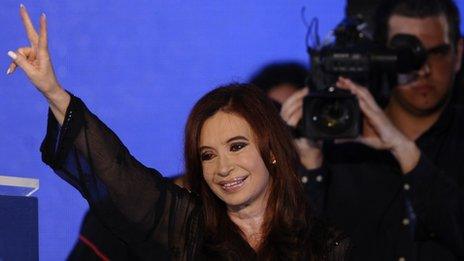
- Published7 December 2022
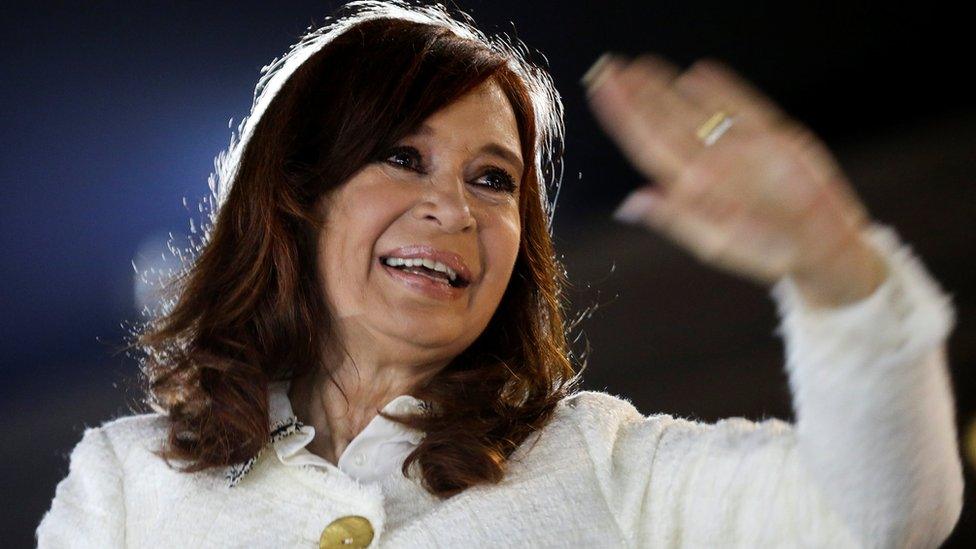
- Published22 October 2011
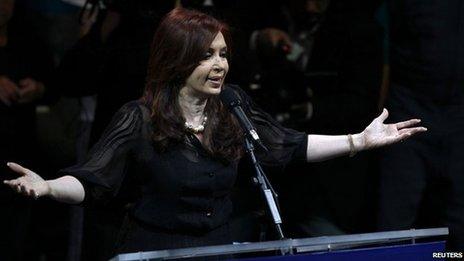
- Published21 October 2011
